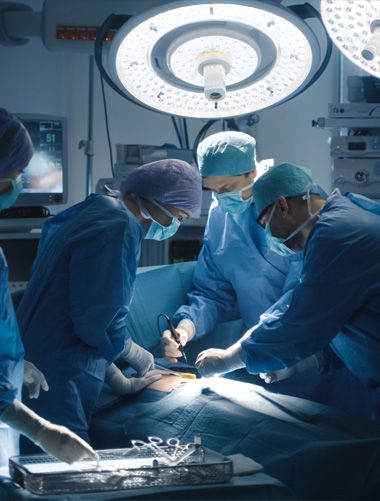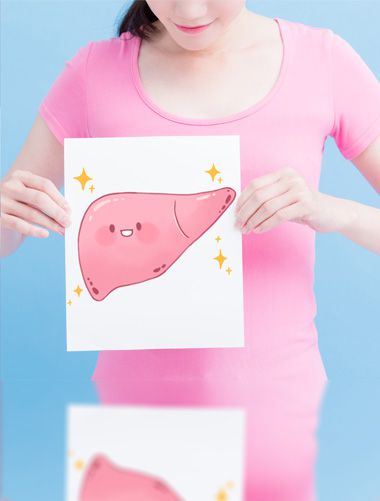

A lung transplant is a surgical procedure in which a diseased or dysfunctional lung is replaced with a healthy donor lung. Donor lungs are most often obtained from individuals who have died of non-traumatic or natural causes. A lung transplant is considered an advanced intervention and is recommended only when other treatments such as medication, therapy, or lifestyle modifications have failed to improve lung function.
Although a lung transplant is a complex procedure, it can greatly increases a patient's chances of survival and his quality of life by restoring adequate lung function. Depending on the extent of damage, a transplant may replace either one lung or both. A lot of African patients from countries like Nigeria, Ghana and Rwanda visit India every year for lung transplant surgery in India. A lung transplant surgery in India is not only very affordable but also very high-quality, performed by leading experts at state-of-the-art clinics. This page will be an African patient's guide to undergoing a lung transplant surgery in India.
A Lung transplant is considered necessary when all other treatments for a diseased lung have been tried, but have not caused any considerable improvement towards the functioning of the lung. Such cases can lead to lung failure, further leading to death. Here are some of the causes of failing lung:
The delay in diagnosing these cases is a significant contributor to the increase. When lung cancer has progressed beyond the point where symptoms may be seen, therapy might be challenging. As a result of their lack of knowledge, many patients who see the early indicators of lung cancer choose to disregard them. This carelessness and lack of awareness end up being deadly for them.
Therefore, everyone must be aware of such indicators so that prompt diagnosis may be made and lives can be saved. To raise awareness, here is a compiled list of warning signs and symptoms of lung cancer.
A lung transplant is a very delicate procedure. If certain medical conditions in your body are found out to interfere with the functioning on the new implanted lung, you may be considered disqualified for a lung transplant. The conditions or the grounds on which you can be rejected as a candidate for a lung transplant are:
There's no telling how long it may be until a suitable donor becomes available, but you'll need to be ready to move swiftly once one does. Always have a way for the transplant team to contact you. Make sure you have a 24-hour supply of your medications, a ride to the transplant facility ahead of time, and bring a fully packed hospital bag. You may need to go to the hospital within the next several hours.
Testing will be done at the hospital to verify the compatibility of the lung and your overall health before surgery is scheduled. In addition to the recipient being in good health, the donor's lung must also be in good condition. If the transplant procedure is not successful, it will be scrapped.
In the Lung Transplant Procedure, you are administered general anaesthesia before the lung transplant surgery so that a painless surgery is ensured from the surgeon's end. The anaesthesia employed is generally strong so it may put you to sleep. The surgeon inserts a tubular structure inside the windpipe via which you will breathe for the time while the surgery is conducted. Another tube is inserted through the nostrils to drain the stomach contents. At the same time, a catheter is also used to drain the bladder before the surgery. Your body is hinged to a heart-lung machine as the surgery is performed. This device is responsible for pumping oxygenated blood throughout the body during the surgery. The surgeon makes a cut around the chest area, opening the passage to the old lung. The old lung is removed, and the new lung form the donor is connected to the airways and the arteries. As soon as the new lung starts to function like a normal lung, the cut is closed via stitches. Since the lung transplant surgery is highly delicate surgery, the patient is kept in the ICU for the few initial days.
The latest one year- lung transplant survival rate for a single lung transplant is about 80%, while the 5 year- lung transplant survival rate for a single lung transplant is about 50%
Undergoing a lung transplant can be daunting, both medically and emotionally, making the process of choosing the right doctor and hospital important. India offers a network of leading experts and specialised centres, where our transplant surgeons perform single- and double-lung transplants along with comprehensive rehabilitative care. This is the list of our best lung transplant doctors in India:
Dr. Arvind Kumar is a top lung transplant surgeon in India, who is known for his expertise in performing advanced transplant surgeries. His high success rates and extensive specialisation in this field have made him a recurring name in respiratory and thoracic treatment care.

Dr. Sandeep Attawar is a specialist in advanced lung transplant in India with extensive surgical expertise in comprehensive patient care. He is recognised for delivering successful results and improving the lives of patients who require complex lung transplants.

Dr. Harsh Vardhan Puri is a leading expert in lung transplantation in India who is known for his successful treatment outcomes and patient-centric treatments. With extensive experience of over 15 years in performing complex lung transplant procedures, he is one of India’s top doctors in this field.

Dr. Hemant Kalra brings over 20 years of experience and training to lung transplant surgery in India. He offers extensive treatment options for patients with severe lung conditions. His expert treatments and successful track record have made him a leading transplant specialist in India.

A number of pateints from African countries visit India for Lung transplants. The cost of lung transplant in India is much lower than any other countries. With excellent facility and infrastructure, India provides the best medical care. The surgeons in India have years of experience and knowledge. You can have Single lung transplant, Double lung transplant, Bilateral sequential transplant, and Heart-Lung Transplant procedures in India. The cost of Lung Transplant in India is provided below.
| Treatment Name | Cost in India | Stay in India |
|---|---|---|
| Lung Transplant in India | $65,000 | 20 Days |
Once the lung transplant is completed, the anesthesiologist will cease administering the anaesthetic. You'll be transferred to an ICU, where doctors and nurses will patiently wait for you to regain consciousness while keeping a close eye on your general health. Your mechanical ventilator will keep you alive in the intensive care unit.
When your doctors deem it appropriate, you will be transferred to a special ward for people who have just had a transplant and have had a mechanical ventilator inserted. The dose of your immunosuppressant medication will be adjusted according to how you and your body react to the treatment.
Patients in the post-transplant unit work with physiotherapists and respiratory therapists to regain strength while their bodies mend. You'll be released from the hospital whenever you've made enough progress, and your doctors are confident in their decision to let you leave. A 12- to 14-day hospital stay, or longer if required, is to be expected following surgery.
After the surgery, you will likely spend several days in the intensive care unit. Your health indicators will need to be tracked constantly. A mechanical ventilator will be used to assist your breathing. Fluid accumulation in the chest may be drained by tubes attached to the patient. The total time spent in the hospital might be many weeks, but it could also be much less. Your stay length is contingent upon your speedy recovery.
You'll see your lung transplant doctors often throughout the following three months. Doctors will watch for any symptoms of infection, rejection, or other complications. You'll need to be close to the hospital doing the transplant. The staff will go through post-operative wound care with you before releasing you from the hospital. You will be informed of any drug limitations.
For the sufferer and their loved ones, the effects of a lung illness may be devastating. When a patient reaches the terminal stage of lung illness, a lung transplant may drastically enhance their quality of life. In India, the price of a Lung transplant cost might range from 25 to 35 lakhs. The patient and their family should verify with their insurance provider that the transplant procedure's total cost is within the policy's coverage parameters. Several variables affect how much a lung transplant can set you back, including:


Successful Liver Transplant Surgery in India
Share Your Reports
Minimally invasive Liver donor surgery
Book appointment